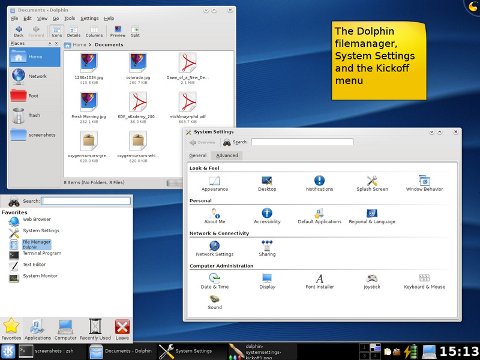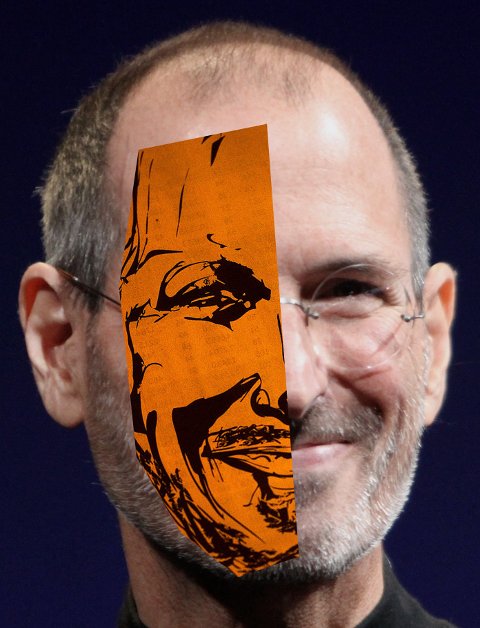09.30.10
Posted in Apple, Asia, GNU/Linux, Microsoft, Windows at 7:38 pm by Dr. Roy Schestowitz

Summary: One of the most advanced societies in the world is (still) held back by Microsoft’s Web-hostile ‘extensions’ which require Windows
THIS POST offers just a pointer or two (via Glyn Moody), covering news which we covered here about half a dozen times before [1, 2, 3, 4].
-
Microsoft had previously dominated the Korean computing experience and this had much to do with its virtual monopoly on Internet technologies used for encrypted communication like online banking and electronic commerce.
However, with local banks starting to allow their customers to move money online on non-Microsoft Web browsers like Firefox and Chrome, the country could be witnessing the beginning of the end of the Microsoft monoculture.
Spearheading the “open banking’’ trend was Woori Bank, which expanded its online banking service beyond Microsoft’s Internet Explorer (IE) browsers in July to support Firefox, Chrome, Safari and Opera users, who were also enabled to access the services from computers run on non-Microsoft operating systems like Linux and Apple’s Macintosh OS.
And it now appears that the Industrial Bank of Korea (IBK) is looking to tweak its online banking service to make it available on Linux and Apple computers too. IBK’s revamped Internet services will be accessible on a variety of browsers and will also support Microsoft’s latest IE 9. The bank will sign a company by October to redesign its Internet banking system.
-
Just a quick note to those who are interested in a status update from Korea. Kim Tong-hyung writes in the Korea Times that a number of major Korean banks are moving towards e-banking systems that will be cross-browser compatible vs. what is available today, which is IE.
The short story is that online banking with Firefox or Chrome is still a long-way off, but we can now foresee such a future, whereas before the changes by the Korea Communication Commission (KCC), such a future was impossible to consider.
Microsoft tried ‘pulling an ActiveX’ again with Silver Lie. Fortunately it failed [1, 2, 3, 4], thanks in part to awareness campaigns against Silver Lie, which Microsoft kept lying about (e.g. saying it runs on GNU/Linux, which it does not). At Microsoft, these issues are usually deliberate. █
“In one piece of mail people were suggesting that Office had to work equally well with all browsers and that we shouldn’t force Office users to use our browser. This Is wrong and I wanted to correct this.
“Another suggestion In this mail was that we can’t make our own unilateral extensions to HTML I was going to say this was wrong and correct this also.”
–Bill Gates [PDF]
Permalink
 Send this to a friend
Send this to a friend
Posted in Apple, Free/Libre Software, GNU/Linux, Microsoft, Vista 7, Windows at 1:41 pm by Dr. Roy Schestowitz

Summary: How Apple and Microsoft actively harm software freedom; GNU/Linux is ready for the desktop, but is the abundance of regulators ready to tackle market distortion and put GNU/Linux on the desktop?
A FEW hours ago we came across this good new article from our reader “Agent Smith”, who put together a three-part series on what different corporations mean to Free/open source software. We largely agree with the analysis which in part 2 labels Yahoo! and IBM as “Neutral” and Oracle as “Neutral-Hostile”. The last part, part 3, names Apple and Microsoft as most hostile (SCO is probably too small to be covered fully but there are more companies listed at the bottom). Taken from the analysis of Microsoft:
But it was not just that: Code being used in its virtualization supervisor , Hyper-V, also had traces of copy of Open Source projects. Microsoft, caught with the hand in the cookie jar, then quickly made a “donation” for Linux kernel drivers.
In the same spirit of “inspiration” for the work of others, Microsoft has also been inspired by Plurk to create a similar service, MSN Juku. Of course, had to shut it down after it became public their Juku service was a blatant rip off.
Some time ago, Microsoft sued Tom Tom, a maker of GPS devices, about patents on file systems. And recently, sued Salesforce , aggressively and unprovoked, as its CRM system can not compete with the Open Source Salesforce’s CRM system.
And then, there are the agreements with Novell, HTC, Samsung, LG, which adds an “imaginary” licensing fee of their patents, so others can use open source projects, of which Microsoft has never helped and never wanted them to thrive.
Besides Mono / Moonlight, which is a time bomb, which enables Microsoft to take actions as Oracle’s lawsuit against Google. That is, if the Mono / Moonlight is not ejected from the Linux environment, we can see, in a not too distant future, more ridiculous lawsuits such as Oracle’s.
Stuart Jarvis has also just posted this comparison between Apple and Linux (and Microsoft too, to a lesser degree):
How Apple works
Apple sells you hardware that they design and specify and they include software for you to run on that hardware. It works, mostly, very well. If it didn’t then they would really be failing – they control everything, know exactly what they need to test with, etc, etc.
How Microsoft works
Microsoft sells you software with basic hardware requirements. They throw in a few drivers for some popular hardware, but mostly your shiny new PC comes with Windows and drivers from the manufacturer already installed. The manufacturer only has to test that their small range of hardware works with Windows and their drivers.
It is worth adding that Microsoft found a way to virtually force people (including OEMs) to buy Windows. This is anti-competitive and the European Commission should do something about it because Windows refunds are still hard to get, let alone machines with GNU/Linux pre-installed (the refunds of Vista 7 are work in progress).
“Linux has better hardware support than Windows…”
–Stuart JarvisThe importance of unbundling is best explained by Jarvis, who writes: “Linux has better hardware support than Windows (certainly than XP when that was current, I can’t compare directly to Vista or 7).” Well, there should be no problem installing GNU/Linux distributions on most barebone hardware these days, so the excuses run out for OEMs. KDE4 works great for any new GNU/Linux user whom I’ve tested so far. All the hardware — wireless included — works out of the box.
“Some vendors will sell you Linux-friendly hardware and even pre-install Linux for you,” adds Jarvis. “Make some real Linux hardware, better quality and better presented than anything from Apple, with a Linux distro and Plasma Desktop tweaked to work perfectly with the hardware and sell it as the ultimate home computer. It would take money (big, established vendor money) and balls (no one ever got sacked for selling Windows, you might for this) but maybe, just maybe, you could be the next Apple. But free.” █
Permalink
 Send this to a friend
Send this to a friend
09.29.10
Posted in Apple, FSF, GNU/Linux, Google, HP, IBM, Microsoft, Patents at 7:07 am by Dr. Roy Schestowitz

Summary: A roundup of news about software patents with increased focus on the weakness of the patent system and its ill effects on software freedom
HP’s use of GNU/Linux scared Microsoft enough to put the company under “risks” in its SEC filings, warning investors that HP had become a threat. Then HP bought Palm, which used Linux its flagship product. Soon afterwards a Microsoft executive was put in charge of software at HP, Hurd got the boot [1, 2, 3, 4], and Slate saw Vista 7 returning, possibly at the expense of Linux/WebOS. Joseph Tartakoff, a Microsoft booster, was unimpressed by Vista 7 on Slate. He wrote:
Is this the HP Windows 7 Slate? Let’s hope it’s a joke news.cnet.com/8301-31021_3-2… #pcbuzz
BackWeb, which Microsoft paid some money to settle a patent case [1, 2, 3], is now suing IBM and HP:
Looks like IBM and HP have just been hit with patent infringement lawsuits. According to a release, BackWeb Technologies has filed separate lawsuits in the United States District Court in San Francisco, California against IBM and HP, alleging patent infringement.
The patents seems to deal with technology for transmitting information between a remote network and a local computer and distributed client-based data caching systems. BackWeb alleges that IBM’s Tivoli Provisioning Manager and IBM’s recently acquired BigFix products infringe four U.S. patents owned by BackWeb. BackWeb also alleges that HP’s Client Automation product infringes three U.S. patents owned by BackWeb covering methods for transmitting information between a remote network and a local computer.
When it comes to Android, Microsoft has been trying to put a patent tax on it. Dana Blankenhorn provokes a little by suggesting that Google cannot defend Android’s good name although he is not referring to the patents issue. He wrote:
“Don’t be evil” may drive cynics away, but it’s a powerful message many people believe nonetheless.
Google is risking nothing less than its brand through its passivity over Android. Carriers have hijacked the mobile Linux distro and turned it decidedly evil, sometimes even preventing buyers from accessing Google without jailbreaking their phones.
CEO Eric Schmidt’s response has been completely passive. Were we to restrict the use of the code, we’d be violating the principles of open source, he says.
It is being claimed that Google is now infringing on Yahoo! patents, because of Google Instant [1, 2] (trivial idea, just bandwidth- and server resources-consuming).
Yahoo! owns several patents covering Google’s new Instant search engine, according to Shashi Seth, Yahoo!’s senior vice president of search and a former search product leader at Google.
The Microsoft-dominated Yahoo! was said to be such an issue a couple of years ago. Some sites argued that Microsoft wanted control of Yahoo! only/mostly because of its patents.
The most effective solution right now would be to eliminate software patents. The FSF is working towards that and Stallman campaigned on the issue down in Australia this month [1, 2]. Here is some more coverage about that [1, 2] (the latter is a Slashdot discussion). Stallman carried other messages too, basically about the importance of sharing.
Looking at some patent news from around the Web, here is another update on Newegg’s battle against a notorious software patent [1, 2, 3]. Patent trolls still roam free in land of the free (but with low success rates when it comes to patents in software) and TechDirt has a lot more to say about that:
Digging deeper into the report, it looks at and tests a variety of different concepts around patents and litigation. In theory, if a patent is used in multiple patent cases, you tend to think that it must be a pretty solid patent, and one that has been vetted plenty of times. And yet, when the researchers looked at the 106 patents that have been involved in eight or more lawsuits since 2000, they found that the patent holder wins such cases only 10.7% of the time. For patents that have only been brought to litigation once, the patent holder wins 47.3% of the time — an astounding difference.
My first thought on hearing such numbers is that the data could be misleading in that many companies may be a lot more willing to settle when sued by a serial patent litigator. However, the researchers tested that and while they did find that a higher percentage of those sued will settle in cases involving a “most-litigated” patent as compared to a “once-litigated” patent, the higher settlement rates don’t offset the huge difference in win rates.
[...]
On the whole, the results certainly seem to suggest that patent trolls with software patents do very much view the system as a lottery ticket, and they’re willing to use really weak patents to try to win that prize. That is not at all what the patent system is designed to do, but it’s how the incentives have been structured — and that seems like a pretty big problem that isn’t solved just by showing how many of these lawsuits fail. The amount of time and resources wasted on those lawsuits, as well as the number of companies who pay up without completing a lawsuit, suggest that there is still a major problem to be dealt with.
WIPO is under scrutiny from singing legend Mr. Wonder, who continues to make them look bad, even in the UN. Here is an update on the “pay-for-delay” patent lawsuit, courtesy of TechDirt:
Among the many, many nasty things done in the name of patent law is the rather disgusting practices of “pay-for-delay”, where a big pharma firm sues a generic pharma maker for patent infringement, with no legal basis, and part of the “settlement” that is then worked out is that the big pharma will pay off the generic pharma not to enter the market with a generic for a certain period of time. Basically, it’s a (by definition and government support) monopoly player in the market paying off competitors to keep the market exclusive. It’s difficult to see how that’s not a blatant violation of anti-trust law. But, alas, apparently the Second Circuit doesn’t see it that way. In April it tossed out a lawsuit over this issue, because the pharma companies involved put in a few worthless other things into the deal that acted as “cover” for the real anti-competitive move — and, since the “monopoly” was from a patent, the court didn’t see it as an anti-trust issue.
Apple turns out to have just gone suppressing rivals using a trademark on “Pod”. [via]
The trademark battle centers on independent entrepreneur Daniel Kokin (right), founder of startup Sector Labs, and his in-development video projector called Video Pod. Apple had previously filed oppositions against Kokin’s usage of “Pod,” alleging that it would cause customers to confuse it with Apple’s iPod products.
Apple, which sued Linux via HTC, is also using patents to exclude competitors right now. “Apple sues ‘HyperMac’ accessory maker over MagSafe, iPod cables,” reports Apple Insider:
Apple has filed a lawsuit against Sanho Corporation, maker of the HyperMac line of accessories, alleging violation of patents it owns related to the MagSafe charger and cables that use the iPod 30-pin connection.
TechDirt wonders, “Is It Patent Infringement To Reuse Recycled Apple Magsafe Connectors?”
AppleInsider has the details of yet another patent infringement lawsuit filed by Apple, who has become a lot more aggressive on the patent front lately. This lawsuit is against Sanho, a company that makes a variety of external batteries for Apple products. There are six patents listed in the lawsuit, but two are design patents, which are pretty narrow.
Apple is just killing competition using patents and in another new story the same tricks are being used quite blatantly (to drive a competitor into bankruptcy also). [via]
Football gear maker files for bankruptcy after losing patent-infringement suit
[...]
The phrase “bet-the-company litigation” is an overused metaphor to describe high-stakes cases. But once in a while the survival of a business is hanging in the balance, as in the case of Schutt Sports Inc.
The Illinois-based maker of football helmets and other sports gear filed for bankruptcy on Labor Day, a month after it was sacked with more than $29 million in damages for violating its rival’s helmet patent. Schutt Sports said in bankruptcy court papers that the verdict was the final hammer, as the company already was struggling with deteriorating revenue and profit margins and an overleveraged balance sheet prior to the jury decision.
Instrumental in blocking competition is the ITC (International Trade Commission), whose role we wrote about in [1, 2, 3, 4, 5, 6]. Here is Sony meeting the ITC wall because of “alleged patent infringements” (mere allegations).
THE US ITC (International Trade Commission) will investigate complaints from a Taiwanese manufacturer about Sony regarding some alleged patent infringements.
The accusations about patent toe-stepping come from Chimei Innolux, one of the biggest LCD manufacturers in Taiwan, Chi Mei Optoelectronics, and Texas based Innolux Corporation, all of which appear to be related companies and are complaining that Sony has ridden roughshod over their patent rights on gadgets ranging from Sony’s televisions to its games console, the PS3.
Innolux Corporation is a company of just 5 or so people and its Web site lists no products. █
Permalink
 Send this to a friend
Send this to a friend
09.24.10
Posted in Apple, GNU/Linux, Google, Hardware, Java, Microsoft, Oracle, Patents, Rumour, SUN at 5:30 pm by Dr. Roy Schestowitz

Jobs image licensed under the GNU Free Documentation License (version 1.2 or any later versions); Ellison patch By Thomas Hawk
Summary: Rumours and speculations that Oracle might prepare to buy ARM Holdings may arouse the suspicion that Android is Ellison’s target
OIN has added Mozilla as a licensee and pro-GNU/Linux bloggers keep talking about it. One person remarked:
I hope OIN is good for Mozilla, but what about Oracle? #swpats
The troubling thing is that despite Oracle and Google both being inside the OIN shield zone, Oracle decided to sue Google using software patents [1, 2, 3, 4, 5, 6] and interestingly enough, as Groklaw points out, they are assigned the same judge as in the Apple vs. Psystar case.
Google has appeared in the Oracle v. Google litigation and they have extra time to file an answer to Oracle’s complaint. Meanwhile, they’ve added some more lawyers to the team and informed the court they decline to have the case handled by a magistrate judge, so it’s been assigned to the Hon. William Alsup. What are the odds? That’s the same judge who presided over the Apple v. Psystar case.
Previously we found rumours that Apple would buy ARM (reported less than a year ago in many news outlets) and also learned that Steve Jobs’ friendship with Larry Ellison might have something to do with the legal attack on Android [1, 2, 3] (Apple is also suing Android using software patents). Right now there is news suggesting that Oracle — not Apple — might buy ARM Holdings, which recently signed a deal with Microsoft.
ARM Holdings Plc, the U.K. designer of chips that power Apple Inc.’s iPhone, rose the most in two weeks in London trading after Oracle Corp. Chief Executive Officer Larry Ellison said his company may buy a chipmaker.
ARM rose as much as 6.8 percent to 417.5 pence, and traded up 6 percent to 414.4 pence as of 12:19 p.m., valuing the company at about 5.47 billion pounds ($8.6 billion).
“We primarily think this is about Ellison,” said Lee Simpson, an analyst at Jefferies Intl Ltd. in London, adding that the “Oracle speculation is unwarranted” and that the company would more likely target an enterprise-focused chipmaker such as Advanced Micro Devices Inc.
Has Oracle not gotten enough from Sun’s SPARC? Back when it was rumoured that Apple would buy ARM people said that it can be seen as an attack on Android. Could the strong friendship between Ellison and Jobs play a role here? As pointed out some hours ago, collusion of this kind if a lot more common than people dare to imagine. █
Permalink
 Send this to a friend
Send this to a friend
09.23.10
Posted in Apple, FUD, GNU/Linux, KDE at 6:41 pm by Dr. Roy Schestowitz
Update: as pointed out in the discussion in the comments, there were some misunderstandings and corrections/clarifications have been made since the original post was published.
Macbook owner is ‘leaving’ GNU/Linux, but did he ever come to GNU/Linux?

Summary: A protest against GNU/Linux comes from an unexpected place — someone who already bought an Apple Mac and then decided to try GNU/Linux on it
INCREASINGLY, Apple becomes a problem which directly harms software freedom. “[A]pple is attacking Linux AGAIN,” said to us someone this afternoon, “and, they’re using kdeplanet again… there’s only rhetoric and guy is deleting non apple friendly comments… there’s pure FUD…”
“To suggest that KDE is hard to use because of versatility is not correct based on these experiences. It’s more of a stigma.”Interestingly enough, the page appears to have just been deleted (it worked earlier and the front page still has the content). Could backlash have caused it? It starts by saying “I originally bought a Macbook to use as a nice Linux laptop and for some iPhone and Qt OSX development.” The funny thing is that this person bought an overpriced Mac and then said he was “Moving to OSX” (which is what’s already installed on the computer to begin with).
Earlier this week I spent hours installing PCLinuxOS (with KDE 4.4) for some other people and they found it very simply to use, even as former XP users with no GNU/Linux experience at all. No guidance was needed. To suggest that KDE is hard to use because of versatility is not correct based on these experiences. It’s more of a stigma. █
Permalink
 Send this to a friend
Send this to a friend
09.22.10
Posted in Apple at 7:36 pm by Dr. Roy Schestowitz

via Wikipedia
Summary: Evidence of Steve Jobs’ impatience leads to some strong responses
A FEW days ago we remarked on the character of Apple's CEO because the vanity seems to be partly rooted in this company’s idol. A Canadian reader of ours, FurnaceBoy who is typically a proponent of some Apple/Mac products, did not appreciate Jobs’ remarks and he referenced this new article from Canada.
The second-last thing Chelsea Kate Isaacs was expecting was a personal email from Steve Jobs.
The very last thing was the iSnub.
Isaacs, a 22-year-old Long Island University journalism student, had emailed the Apple Inc. founder when she couldn’t get a comment from Apple’s media-relations office to complete her school assignment.
[...]
“Nope,” wrote Jobs. “We have over 300 million users and we can’t respond to their requests unless they involve some kind of problem. Sorry.”
I am a customer, Isaacs hammered out on her BlackBerry. I do have a problem. And then came the iSnub: “Please leave us alone.”
Below we put parts of the IRC log which discusses this. █

IRC: #boycottnovell-social @ FreeNode: September 22nd, 2010
Join us now at the IRC channel.
Permalink
 Send this to a friend
Send this to a friend
09.21.10
Posted in Apple, Finance, Microsoft, Rumour at 5:25 pm by Dr. Roy Schestowitz

Summary: Analysts take a close look at Microsoft and they don’t like what they see; Microsoft is apparently trying to hide losses by merging units; alleged Microsoft employees are suggesting that more layoffs are weeks away
MICROSOFT’S financial situation is somewhat of a misunderstood subject because the company has debt and despite bragging about huge profits the company has vapourised a lot of its cash reserves. Under Ballmer’s reign or era the company lost about half its value (Microsoft would rather people evaluate it by its stock alone). Microsoft’s GNU/Linux-hostile COO Mr. Turner is dumping his Microsoft shares and despite some recovery in the stock market (see Red Hat’s performance for example) Microsoft’s performance remains rather abysmal:
Microsoft, down about 22 percent this year, is a profit powerhouse. In its last fiscal year that ended in June, it posted a 40 percent pretax profit margin and a return on stockholders’ equity of 44 percent.
That’s what Microsoft says, but there are more sceptical people out there.
“[T]he shell game of hiding loses, moving divisions around that are losing too much money (Kin)”
–Chips B. MalroyMicrosoft thinks that Microsoft is cheap and some people went along with this type of headline (we found two examples), implying that Microsoft is about to surge. Well, on what basis exactly? A current/former Microsoft shareholder suggests dumping the stock. The company’s financials are not so impressive (buybacks imminent) and Microsoft has debt (last covered last week and therefore not worth repeating).
“Jefferies & Co. said Microsoft Corp. could borrow up to $4.5 billion,” according to two separate articles from last week [1, 2]. The latter says “Jefferies Thinks Microsoft Could Borrow $4.5 Billion” (Microsoft has already borrowed several billions).
Mary Jo Microsoft has just revealed that Microsoft may be using the old trick of merging unrelated businesses so as to make all divisions look profitable. We saw Microsoft doing this several times before. This time it’s a huge stretch because Microsoft tries to merge embedded (failing) with server and tools (successful). This way, according to our reader Chips, the failure will be hidden away in a bigger bucket. It’s “the shell game of hiding loses, moving divisions around that are losing too much money (Kin),” he explains.
There’s some odd reorg-related news coming out of Microsoft today, September 20. The company is announcing that it is moving its Embedded business into the Server and Tools unit.
[...]
I had been assuming Embedded might end up as part of Windows client or maybe as part of the Mobile Communications Business (since Microsoft’s Mobilebusiness is one of the biggest — though not the only — OEM for the various Embedded division products).
This is worse than the Microsoft blog makes it seem (we have not yet identified any proper analysis of this). But it gets worse. After some recent downgrades and the like from a Standard & Poor’s analyst and from Credit Suisse Microsoft takes another couple of hits. “FBR cuts Microsoft profit view” says this report which expands as follows: “FBR Capital Markets lowered its profit estimates for software giant Microsoft Corp due to softening consumer demand for PCs.”
“[O]nly seen about 3 comments new on Mini msft about layoffs, maybe in Oct.”
–Chips B. Malroy“Morgan Stanley Cuts Estimates on Microsoft Corp.’s Slower PC Sales” says another report, just one among several. This cannot be good. It means that Microsoft’s upcoming results will not impress (even it they beat already-lowered street expectations, as usual because it’s easy to assure).
Chips B. Malroy says that he has “only seen about 3 comments new on Mini msft about layoffs, maybe in Oct.” That’s the blog where many anonymous Microsoft employees comment. Have any other readers noticed something about layoffs that are coming next month? Microsoft has had many rounds of layoffs in recent years because it's moving overseas to cut costs. This often means that the quality of products is reduced, not just working conditions and wages.
To repeat what was said at the start, Microsoft lost about half its value over the past decade (mostly under Ballmer’s management) and one item of news says: “That’s right, Microsoft is nearly $170 billion cheaper today than it was a decade ago. That’s an eye-popping discount. Of course, there are plenty of stocks that have gone backwards during the past 10 years, however, most are just a shadow of their former selves.”
Microsoft’s market cap is well behind Apple's and in terms of brand value Microsoft is not doing so well, either. Its position fell over the years [1, 2, 3, 4, 5]. This is one of the more Microsoft-friendly ladders and in this specific one “third place is still occupied by Microsoft, the software giant.” In some other surveys/ladders of this kind Microsoft is doing much worse (the UK one/s being the exception).
Here is a fascinating observation that we found. It just states the obvious:
It’s to assuage worries that too much of MS’s value is held overseas, resulting in tricky taxation situations. More than anything else this confirms one thing: Despite its PR, MS isn’t in the business of serving consumers … it’s a money-making machine.
“Why Apple Beats Microsoft At Change Management” says this headline from Forbes and although we spend no time comparing Microsoft to Apple (it’s the wrong comparison to have when we really deal with software freedom versus proprietary software, not brands), Chips B. Malroy insisted on pointing out (twice even) that Apple’s hypePad (and to some extent Google Android too) is causing huge damage to Microsoft sales. █
Permalink
 Send this to a friend
Send this to a friend
09.20.10
Posted in Apple, GNU/Linux, Google, Microsoft, Search at 9:04 am by Dr. Roy Schestowitz

Summary: The dark future of Vista Phone 7 [sic] is shown with the backing of many news articles and explanations about the suicidal gambles Microsoft made
Msmobiles.com is apparently dead. It was an interesting place in which to learn about customers’ gripes, not just Microsoft’s utterly bad mobile products (back when the flag to be carried was
“Windows Mobile”). “Interesting article[s] to read and site,” said our reader Girts to us.
“Yes, Windows Mobile is dead until it will be open source then it will have maybe bright future,” he added.
“Yes, Windows Mobile is dead until it will be open source then it will have maybe bright future.”
–GirtsLast night we shared some links about mobile market share estimations. Linux seems like the long-term victor and bar software patents it’s unstoppable. Referring to US market on the face of it, comScore reported good growth for Linux. Microsoft Nick reported on that and comScore is paid by Microsoft [1, 2, 3, 4, 5, 6, 7, 8, 9, 10] (comScore is usually showing opposites of what everyone else is showing, so maybe it sells bias to Microsoft). This helps show that even sources that are biased in favour of Microsoft could not help reporting a sharp decline in Windows market share in mobile.
“Nearly Ninth Inning For Microsoft Smartphone Effort” says an article whose language is explained as follows: “Pardon the baseball metaphor but it seemed appropriate: the impending debut of Windows Phones (Windows Mobile 7) is a very high stakes moment for Microsoft, especially in the wake of Kin’s recent failure. [...] The fate of Windows Phones and Bing’s future are not necessarily inextricably linked. Bing has diversified beyond Windows Mobile and can succeed potentially even if Windows Phones fail. But it needs to succeed on its own merits rather than count on default search deals like the one with Verizon (which has seen some user backlash).”
“Linux seems like the long-term victor and bar software patents it’s unstoppable.”Samsung and others are reluctant to experiment with the poor phone platforms which Microsoft produces, especially after “KIN” [1, 2, 3, 4, 5, 6, 7]. Some Microsoft partners got severely burned by “KIN”, so unless (just perhaps) Microsoft pays them to do so, few companies will even bother with Vista Phone 7 [sic]. “Verizon Wireless Will Take Its Time To Sell Windows Phone 7″ says this headline.
Maybe Verizon Wireless still has a sour taste left its mouth when Microsoft (NSDQ: MSFT) abruptly shutdown the teenage-focused KIN project less than two months after Verizon started selling it? Maybe not. But whatever is the case, the largest U.S. carrier said it will wait until next year to start selling phones based on Microsoft’s Windows Phone 7, reports Bloomberg.
“Microsoft has gotten very desperate and it’s nowhere near competitive enough to fairly compete in the mobile space.”Also see “Verizon will not sell Windows Phone 7 devices until 2011″ and “First generation Windows Phone 7s won’t be on Verizon or Sprint”.
The Microsoft boosters cheer Microsoft’s scheme of paying to exclude rivals at Verizon (background in [1, 2, 3]), whereas others are more critical (“Fascinate Fiasco: Is Verizon Blocking Google Search?”).
They just can’t compete, so instead they try to tax Linux-powered phones. “Microsoft Must Make Its Own Phone If Wants To Make Money,” says Business Insider, but Microsoft tried it with “KIN” and it won’t be doing that again. See “Microsoft Isn’t Planning On Making Any More Cellphones” and “Microsoft Has No Plans for Design Another Smartphone – Executive.” It just won’t happen, unless Microsoft is lying yet again.
“An alternative route Microsoft seems to be exploring is entry through acquisition and/or entryism (the cheaper way).”An alternative route Microsoft seems to be exploring is entry through acquisition and/or entryism (the cheaper way). Recall Yahoo! hijack through entryism and see the news about “Microsoft Windows Phone 7 exec leaves for Yahoo” (also covered in [1, 2]). The original report (“Another Former Microsoft Exec to Yahoo, Joining Other Ex-Softies”) says: “He is now SVP of Yahoo’s communications products and communities unit.” Many of his ‘new’ Yahoo colleagues are former colleagues from Microsoft, who helped take over Yahoo! so that it doesn’t need to be acquired in order to be exploited.
“This potential Nokia invasion would require Elop to surround himself with former colleagues from Microsoft (like Maritz in VMware) or sign some new Microsoft deals.”Speaking of entryism, here is the type of articles we alluded to some days ago; it’s titled “Will Microsoft And Nokia Team Up To Take On Apple, Google?” (source: TechCrunch).
This potential Nokia invasion would require Elop to surround himself with former colleagues from Microsoft (like Maritz in VMware) or sign some new Microsoft deals. Nokia soared when the appointment was announced. There are also some suggestions (still) that Microsoft should by RIM. One columnist asked, “Will Steve Ballmer Buy RIM Now Just To Destroy Nokia?”
One financial news site asked, “Should Microsoft buy RIMM?” Another one asked, “How Would You Feel If Microsoft Buys RIM?”
“Microsoft just cannot buy Apple and Google.”Microsoft may need to borrow more money to just duplicate and saturate what it already has (shades of Danger) and have more proprietary software whose market is stagnating due to lack of technical edge anyway. Microsoft just cannot buy Apple and Google. Microsoft was asleep behind the wheel for far too long and investors who pushed for the ousting of Ballmer were mentioning RIM takeover almost 2 years ago (when Microsoft was in less of a desperate state).
RIM has just bought DataViz [1, 2, 3], which significantly reduced chances of RIM planning to be acquired. The question is, will RIM’s ownership of DataViz impact support/availability on other platforms? “DataViz Keeps Documents To Go Updates Coming” says IDG. Oddly enough, one article says “RIM Buys Another Company — This Time To Defend Itself Against Microsoft”
“Joe Wilcox, a former Microsoft watcher, says that IDC and Gartner mobile OS forecasts may not be trustworthy…”Microsoft is hardly its main competition in phones, just in office suites. The thing about Microsoft in mobile is that it is almost irrelevant everywhere in mobile devices (tablets too), it just roars a lot and organises a funeral for BlackBerry rather than for itself.
Going back to Nokia again, the Microsoft boosters have an audiocast about this subject which we covered too much already. Microsoft executive Stephen Elop jumping to Nokia is something which we mentioned in the previous post and well before that. Joe Wilcox, a former Microsoft watcher, says that IDC and Gartner mobile OS forecasts may not be trustworthy (check their clients list because IDC and Gartner have questionable practices). Scepticism withstanding, one writer is saying or rather just asking, “Can Android Be Stopped in the World of Smartphones?” He is confused by IDC and IDG (see cross/strikeout), but they are inherently the same, one is a subset. “Microsoft Faces an Uncertain Future in Search, Mobile OS and Cloud Computing (MSFT)” says another new article and even firms that Microsoft is paying cannot spin in Microsoft’s favour anymore (neither regarding present nor future). Microsoft boosters just admit that “Research firm has low expectations for Windows Phone 7″ (this is Microsoft Nick’s headline).
“Way to spend half a billion dollars marketing a technically bad product!”“Microsoft Struggles to Gain in Mobile Search” says the headline from Murdoch’s press and the advertisements (brainwash) for Microsoft’s mobile business get negative reactions/reviews. Way to spend half a billion dollars marketing a technically bad product!
“Yes, Windows Phone 7 is doomed” says the headline from TG Daily, a site which is usually in favour of Microsoft’s interests. “Because I’m not sure if there is anyone I know who would seriously consider purchasing a Windows-powered phone,” wrote the author. “Seriously, folks, how many people do you see running around proudly flashing their Zunes? “Um, yeah.
” Probably not that many, right?”
“Delays and setbacks are already hitting Vista Phone 7 and it is not helping that Microsoft has been ‘rebooting’ everything, including backward compatibility.”Delays and setbacks are already hitting Vista Phone 7 [1, 2] and it is not helping that Microsoft has been ‘rebooting’ everything, including backward compatibility. “The Windows Phone 7 gives a fresh start to Microsoft,” says this article. Does that make Microsoft a startup contender? Again, this is suicidal and a lot of marketing is the only impact Vista Phone 7 will have. Expect a lot of marketing (as much as Vista 7 marketing, budget-wise). Just how many gullible souls can Microsoft lure into Kin2K? Frankly, in order to save money, Microsoft ought to just cancel this whole product before launch. It does not need to be launched just for the sake of it. Learn from Courier, Microsoft, and spare the money.
Just don’t expect any pornography to attract users to Vista Phone 7. Microsoft is barring that too, just like Apple and unlike Android/Linux/Google. Given that Microsoft starts from 0% market share, is it not too risky and premature to place restrictions on developers? This is gonna be atrocious; both journalists and analysts feel that way too (not necessarily Microsoft PR people or bribed journalists/analysts in this $500,000,000 marketing frenzy). █
Permalink
 Send this to a friend
Send this to a friend
« Previous Page — « Previous entries « Previous Page · Next Page » Next entries » — Next Page »

























 Content is available under CC-BY-SA
Content is available under CC-BY-SA